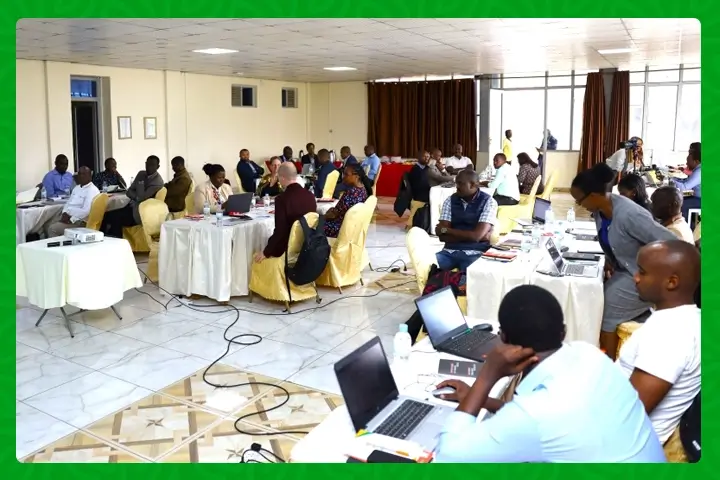
In a pioneering effort to propel sustainable agriculture and food systems, the Ministry of Agriculture and Animal Resources (MINAGRI) and the Food and Agriculture Organization of the United Nations (FAO) have inaugurated the first training session of the PSTA 5 “Rwanda Agriculture and Food Systems – Policy Learning Programme” (PLP). This revolutionary 10-month initiative is set to seamlessly integrate food system development into policies, actions, and investments, marking a transformative stride towards a resilient and sustainable future.
Echoing the recent Knowledge Seminar of the 5th Rwanda Strategic Plan for Agriculture Transformation (PSTA 5), officiated by the visionary Minister of Agriculture, Dr. Ildephonse Musafiri, the PLP embarks on a journey through six pivotal thematic areas. These encompass Food Systems, Nutrition and Healthy Diet, Trade, Political Economy Approaches to Governance, Climate-Resilient Food Systems, and Public-Private Partnerships for Research and Innovation.
The Policy Learning Programme, spanning ten months, unfolds with one-week sessions dedicated to each thematic area. The inaugural session, focused on Food Systems, commenced on November 27 in Musanze. This collaborative venture harnesses the expertise of the Institute for Innovation and Public Policy, University College of London, known for their innovative policy design using systemic approaches.
Addressing the opening session, Dr. Chantal Ingabire, Director General of Planning for the Ministry of Agriculture and Animal Resources, highlighted the PLP’s mission to ensure that policies create an environment conducive to impactful investments in agriculture and food systems, ultimately contributing to the nation’s robust economy.
She affirmed, “The PSTA 5 Policy Learning Programme aims at ensuring that policies set the right conditions for investments in agriculture and food systems to have a real impact on our economy.”
With a cohort comprising 30 senior and technical experts from various government departments, the PLP seeks to equip participants with skills in systems thinking, fostering enhanced policy development and governance arrangements. This diverse group includes representatives from MINAGRI, Rwanda Agriculture and Animal Resource Board (RAB), National Agricultural Export Development Board (NAEB), Ministries of Trade and Industries, Environment, Youth, Finances, as well as the National Bank of Rwanda (BNR).
Coumba Sow, FAO Country Representative in Rwanda, emphasized the significance of this applied learning program, stating, “This long week session on ‘Systems approach for food and agriculture in Rwanda,’ an applied learning programme by FAO and UCL Institute of Innovation and Public Purpose will ensure the adequacy of the capacities of the policy makers and help public sector staff from various sectors better understand the concept of agriculture linked to food systems and complex challenges.”
While Rwanda has achieved notable progress in its agricultural sector, aligning with sustainable development goals, challenges persist. From climate change to food loss, malnutrition, and insecurity, the need for a paradigm shift is urgent. Coumba Sow emphasized that traditional approaches are no longer sufficient; collaboration must extend beyond conventional boundaries.
As Rwanda navigates post-COVID conditions, economic factors, and global conflicts, the Policy Learning Programme signals a proactive step towards a resilient and sustainable future for the nation’s agrifood systems. In this era of change, MINAGRI and FAO are planting the seeds of transformation, fostering a brighter, more sustainable tomorrow for Rwanda.
Original article from New Times
Stay updated with the latest farming tips and agriculture industry news from Africa by subscribing to our newsletter. Don’t miss out on valuable insights and updates. Follow us on Twitter, LinkedIn, and Facebook to join our farming community and stay connected with us.



















